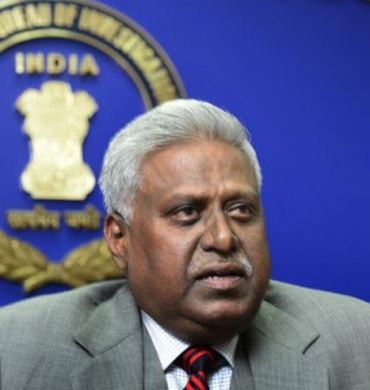 Pointing out some "anomalies and legal inconsistencies" in the Lokpal Act, the Central Bureau of Investigation has raised a question as to whether the entire probe agency will be divested of all powers if any of its officer was found guilty of corruption or tampering with evidence.
Pointing out some "anomalies and legal inconsistencies" in the Lokpal Act, the Central Bureau of Investigation has raised a question as to whether the entire probe agency will be divested of all powers if any of its officer was found guilty of corruption or tampering with evidence.
CBI Director Ranjit Sinha while highlighting the "anomalies" in the Lokpal Act and amended Central Vigilance Commission Act in connection with its working has sought clarifications from the Union government.
Sinha said these needed to be thoroughly examined to avoid any litigation as otherwise the entire anti-corruption effort will be weakened.
In a five-page letter to Department of Personnel Secretary S K Sarkar, Sinha referred to some of the anomalies in the Lokpal Act which included Section 38, agency sources said on Wednesday.
Section 38 is a provision to "divest such agency engaged or associated with the Lokpal of all powers" if an officer or employee of the office of the Lokpal or agency engaged or associated is likely to destroy or in any way tamper with the evidence or influence witnesses in corruption cases.
The CBI Director said "clarification is required as to whether for a wrongdoing of an officer, the entire agency can be divested of all powers and responsibilities".
Sinha also referred to another Section 46 (i) of Lokpal which deals with punishment of those who make vexatious complaints, saying this process should be initiated only after the individual against whom the complaint has been made approaches the competent court.
"It is suggested that in case such false, frivolous or vexatious complaint is made against the CBI, then Director CBI should also be authorised to make such complaints in the court," Sinha said.
The much-awaited Lokpal Bill, which was passed during the Winter Session of Parliament last month, got the assent of President Pranab Mukherjee on January one.
The CBI Director also referred to Section 25 whereby Lokpal shall have powers of superintendence over CBI and give directions to it in respect of Preliminary Enquiry and investigations provided by it.
"It is not clear as to in what respect or areas such directions could be given by the Lokpal to the investigating agency in the backdrop of provisions to the section," Sinha said in the letter.
The CBI Director also highlighted a situation wherein same complaint is referred to Lokpal and CVC and both issue directions to CBI.
"Which of the two directions would prevail? The provisions" of Lokpal bill do not answer the query?, Sinha asked.
He said Section 15 of the Lokpal Act provides that in case any matter under Prevention of Corruption Act has been pending before any court or committee or authority prior to commencement of this Act such matter of proceeding shall continue before the same bench.
"It needs to be unambiguously clarified that the CBI is included as one such 'authority' so that ongoing investigation or enquiry of the CBI is not subject to controversy or litigations," he added.










